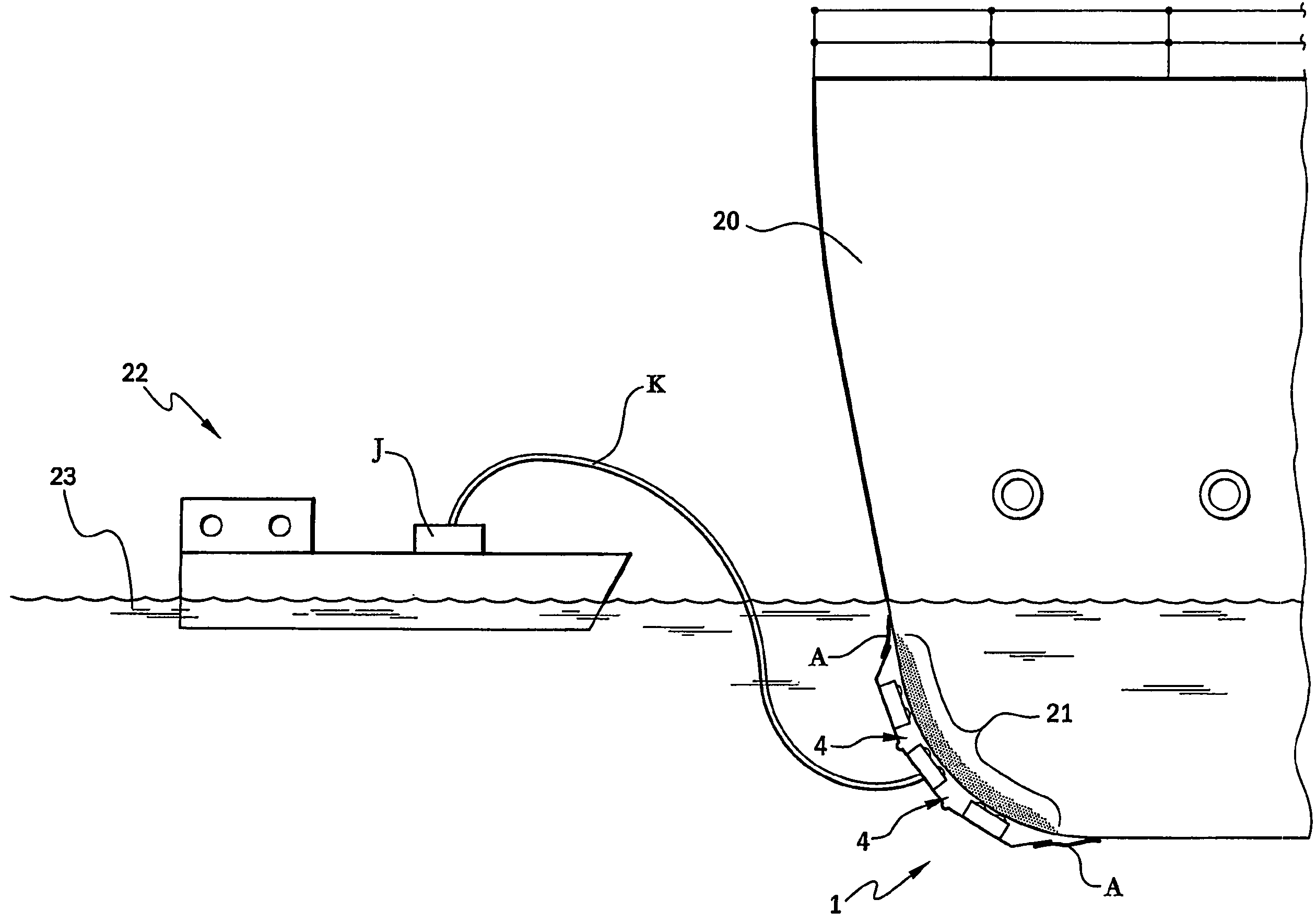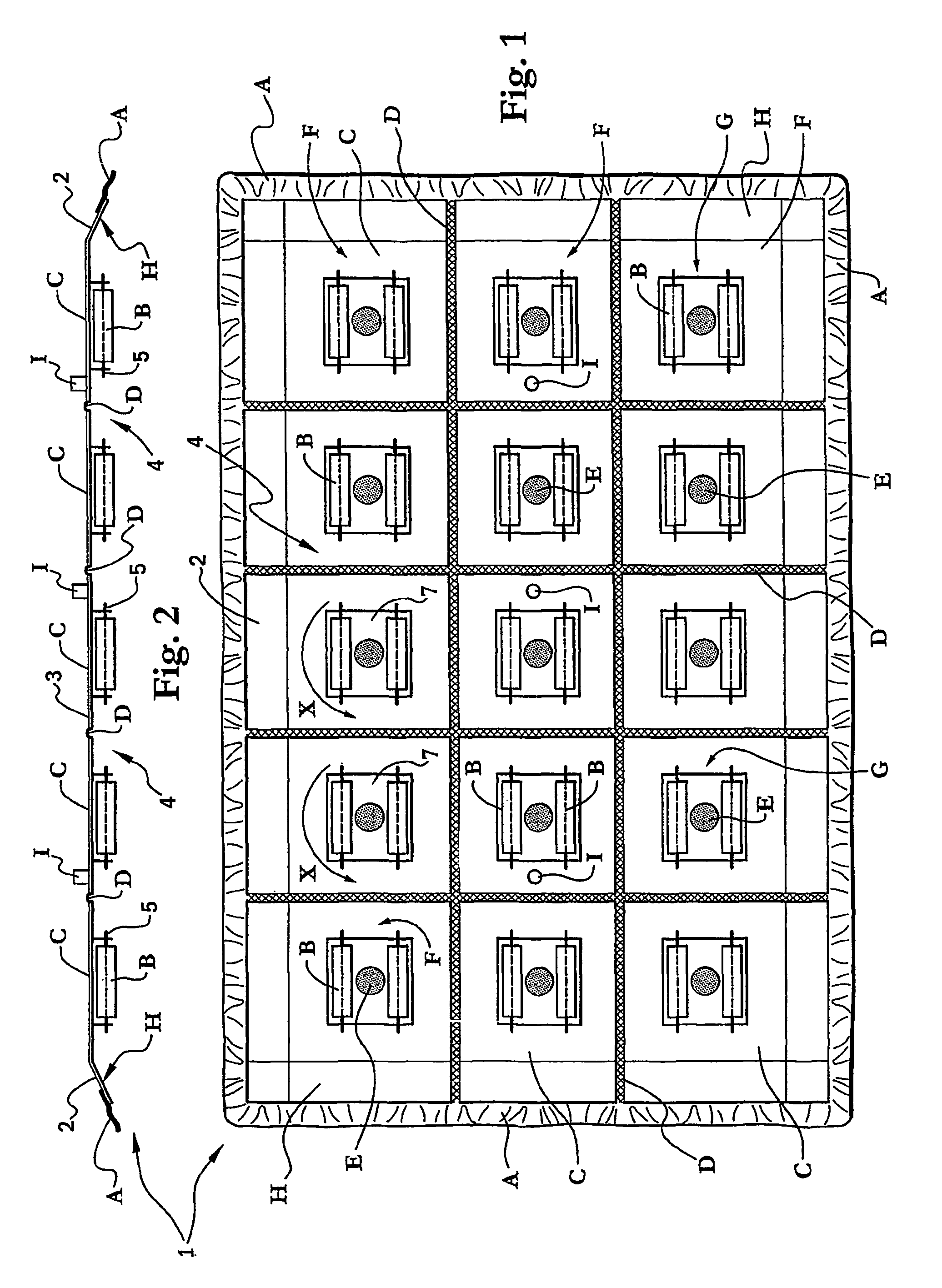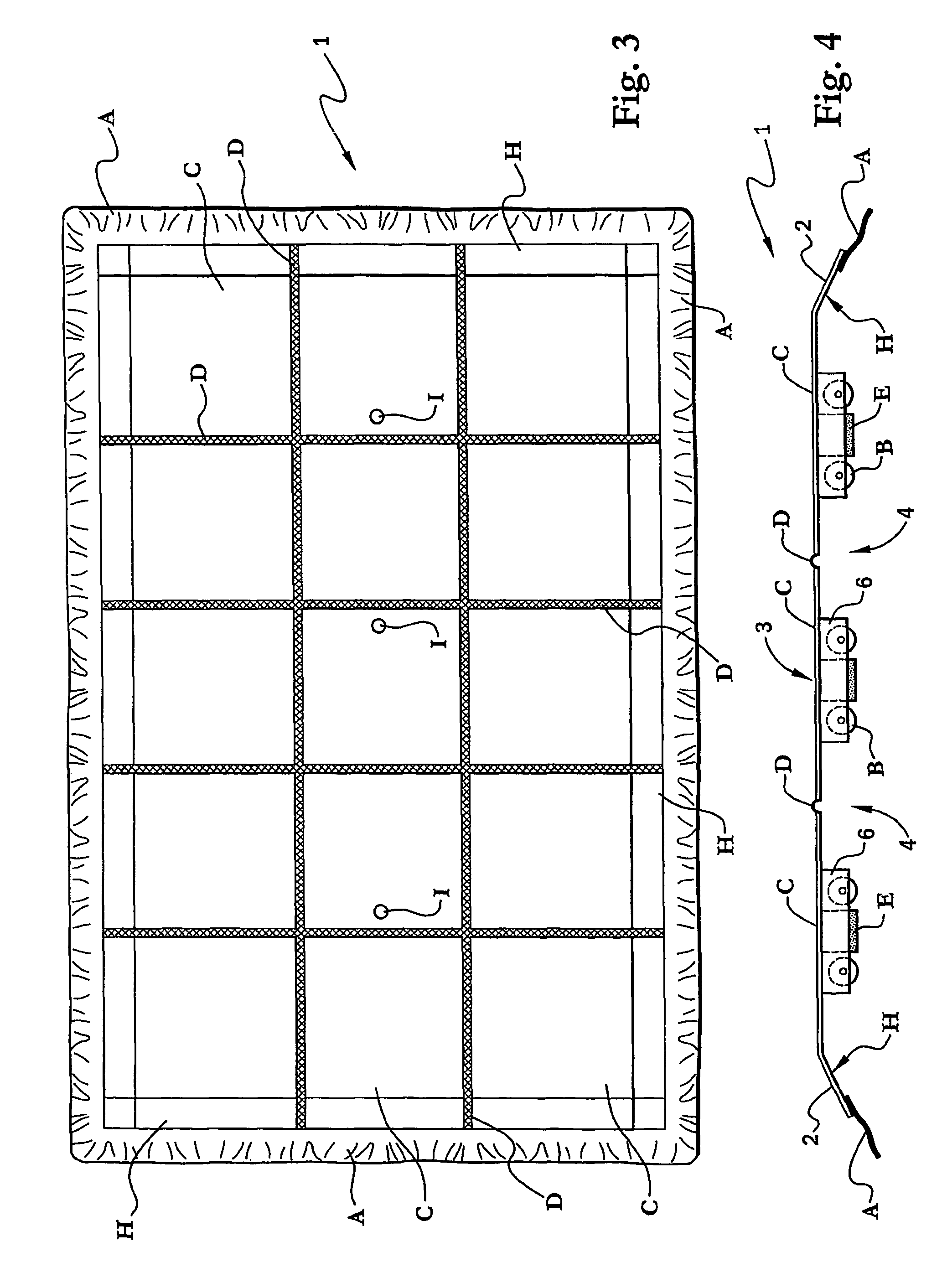Method and apparatus for treating marine growth on a surface
a technology for treating methods and equipment, applied in the field of methods and equipment for treating marine growth on the surface, can solve the problems of significant cost, significant problem, and growth of marine organisms on water resident objects such as piers, waterways,
- Summary
- Abstract
- Description
- Claims
- Application Information
AI Technical Summary
Benefits of technology
Problems solved by technology
Method used
Image
Examples
Embodiment Construction
[0037]FIGS. 1 to 4 are views of an embodiment of an apparatus in accordance with the present invention. The apparatus, generally designated by reference numeral 1, is in the form of a confinement arrangement 1 arranged to confine a volume of fluid adjacent to a portion of a surface to be treated for marine growth. In this example embodiment, the confinement arrangement 1 is in the form of a flexible cover 1, comprising sides 2 and a back 3 arranged to define a space 4 within the sides 2 and back 3 for confining the volume of fluid.
[0038]The confinement arrangement 1 includes a retaining means E which is arranged, in operation, to retain the confinement arrangement (and therefore the confined volume) adjacent the surface being treated. In this embodiment, the retaining means are in the form of magnets E fixed to the underside of the cover 1. In this embodiment the magnets E are fixed in between rollers B. The rollers B operate, together with sides 2 of the cover 1 to prevent the magn...
PUM
| Property | Measurement | Unit |
|---|---|---|
| temperature | aaaaa | aaaaa |
| temperature | aaaaa | aaaaa |
| thickness | aaaaa | aaaaa |
Abstract
Description
Claims
Application Information
 Login to View More
Login to View More - R&D
- Intellectual Property
- Life Sciences
- Materials
- Tech Scout
- Unparalleled Data Quality
- Higher Quality Content
- 60% Fewer Hallucinations
Browse by: Latest US Patents, China's latest patents, Technical Efficacy Thesaurus, Application Domain, Technology Topic, Popular Technical Reports.
© 2025 PatSnap. All rights reserved.Legal|Privacy policy|Modern Slavery Act Transparency Statement|Sitemap|About US| Contact US: help@patsnap.com



